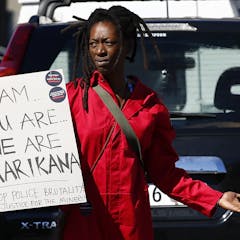
Articles on South African history
Displaying 1 - 20 of 78 articles

Eddie Webster inspired generations of scholars with his vision and practice of critically engaged scholarship, in South Africa and worldwide.

The interviews in this book offer firsthand insights into women’s participation in the armed struggle against apartheid.

The book tells the inside story of how they changed the sound of urban pop.

Coca-Cola has often been entangled with key political moments in Africa since its arrival in the early 1900s.

Despite its historic importance, Sharpeville itself has remained unknown and its residents anonymous, yet they have a story to tell.

The father of Khoisan revivalism became a public historian as his academic work met activism.

Buthelezi should not be dismissed as a mere stooge during apartheid. Yet, he deserves little praise as an advocate for human rights and civil liberties.

The early Nelson comes across as a man consumed by insecurity and ambition, plagued by inner strife and anger.

The word shows that language isn’t static, it evolves to reflect developments in a society.

The 2024 general elections will show to what extent the new provincial leadership can start to turn around the ANC’s fortunes in the Western Cape.

South Africa is one of four African countries participating in the tournament, which begins on 28 July.

A new book delves into the issues faced by a 1971 international tennis tour, and calls for injustice to be recognised.

Shaka iLembe hits TV screens on 18 June. The Zulu leader has never been portrayed as a real man - hopefully this time he will be.

Jonny Steinberg talks about his intimate double biography of the famous South African leaders.

Missionaries and African translators working on local versions of the Bible divided South Africa’s ethnic groups by language.

Fifty years ago the council was created to fight for marginalised communities to participate fairly in sports. Their dream remains unfulfilled.

Before colonialism black South Africans viewed sex and morality very differently than today.

Struggle songs are relevant even in the post apartheid context because they continue to be an important way in which people deliberate on issues.

Royal women play important roles in succession disputes, such as the naming of King Goodwill Zwelithini kaBhekuzulu’s heir.

Individual beliefs about the past and its relevance to the present strongly influenced awareness of the Marikana tragedy.
